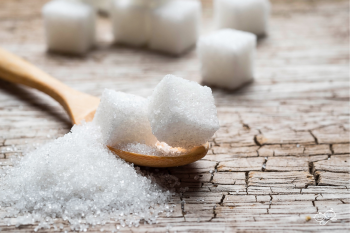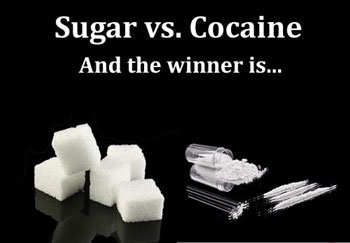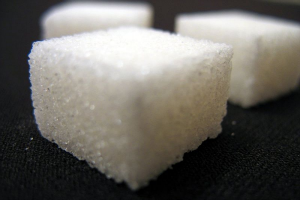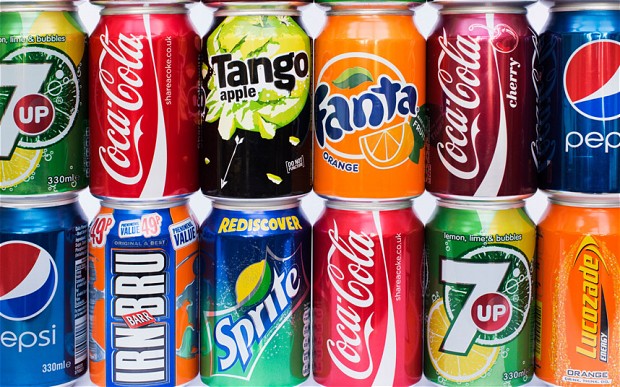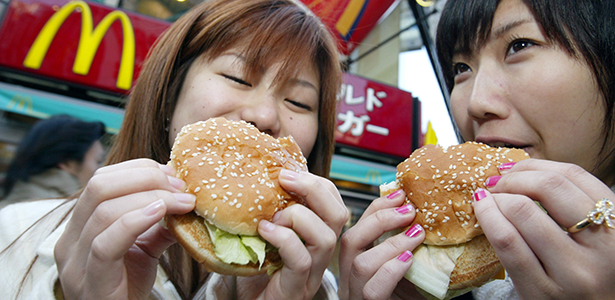– New Study Reveals Sugar Doesn’t Just Feed Cancer, It CAUSES Cancer:
Research Reveals How Sugar Causes Cancer
The average American consumes their body weight annually in this cancer-causing substance, and yet hospitals freely feed it to their cancer patients, oblivious to the harm it does.
Hospitals feed cancer patients sugar and high carbohydrate diets for a reason: they are abysmally ignorant of the role of nutrition in health and disease — hence their burgeoning growth and packed rooms.
Even though the science itself shows (at least since the mid-20’s with Otto Warburg’s cancer hypothesis) that tumors prefer to utilize sugar fermentation to produce energy rather than the much more efficient oxygen-based phosphorylation*, hospitals have actually invited corporations like McDonald’s to move into their facilities to “enhance” their patient’s gustatory experience, presumably to provide comfort and take the edge off of the painful surgery, radiation and chemo treatments erroneously proffered to them as the only reasonable “standard of care.”
But the times are changing, with new research requiring these medical institutions to reform their dietary strategies, at least if they wish to claim that their interventions are in fact evidence-based…
New Study Reveals Sugar Doesn’t Just Feed But Causes Cancer
A groundbreaking new study, uncovered by one of the volunteer researchers at Greenmedinfo – Jonathan Middleton – is the first of its kind to identify sugar, not only as a fuel source for an already existing cancer, but as a primary driver in oncogenesis – i.e. the initiation of cancerous characteristics (phenotype) within previously healthy cells.
Published in the Journal of Clinical Investigation and titled Increased sugar uptake promotes oncogenesis via EPAC/RAP1 and O-GlcNAc pathways, researchers addressed a common perception (or misperception) in the cancer research community regarding sugar’s relationship to cancer: namely, that “increased glycolysis [sugar based metabolism] is frequently viewed as a consequence of oncogenic events that drive malignant cell growth and survival.”
Read moreNew Study Reveals Sugar Doesn’t Just Feed Cancer, It CAUSES Cancer
